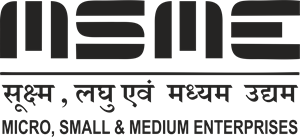1) Digital MSME Scheme
1) Design Clinic Scheme
Description: The objective of Design Clinic Scheme is to enhance industry understanding and application to design and innovation, and to promote design as a value adding activity and integrate it into mainstream business and industrial process of MSMEs; bring the industrial design fraternity closer to the MSME Sector; increase the awareness of the value of design and establish design learning in the MSME, and increase the competitiveness of local products and services. Activities under the scheme include
(i) Design Awareness Seminars/Workshops
(ii) Professional Design Projects
(iii) Student Design Projects
(iv) Orientation programmes.
Nature of Assistance: There is a provision of financial assistance of Rs. 15 Lakh (GoI: Units:75:25) for individual or upto 3 Micro units and 25 Lakh (GoI: Units:75:25) for more than 3 Micro units. For Small & Medium units, it is Rs. 25 lakh (GoI: Units: 60:40) for individual or upto 3 Units and Rs. 40 Lakh (GoI: Units:60:40) for more than 3 Units.
Who can apply: All Udyog Aadhaar Memorandum (UAM) registered manufacturing Micro, Small and Medium Enterprises (MSMEs) profitable entity in last three years are eligible to take the benefit of scheme.
How to apply: The MSME can submit their application to NID, Ahmedabad, IISC Bengaluru who have been nominated as IA.
2) Lean Manufacturing Competitiveness Scheme (LMCS)
Description: The Lean Manufacturing Competitiveness Scheme (LMCS) is a business initiative to enhance Competitiveness of the manufacturing sector, imbibing a culture of continuous improvement inculcating good management system resulted through increase in overall productivity. The objective of the scheme is to enhance the manufacturing competitiveness in MSMEs through the application of various Lean Techniques by reducing waste, increase productivity, imbibing a culture of continuous improvements etc.
Nature of Assistance: Provision of financial assistance to MSMEs upto Rs 36 Lakhs (maximum) per mini cluster of 10 units for a period of 18 months or till completion (GoI: Units:80:20, Rs. 28.8 Lakhs: Rs. 7.2 Lakhs).
Who can apply: All registered Micro, Small and Medium Enterprises (MSMEs) having valid Udyog Aadhaar memorandum and engaged in manufacturing activities are eligible to avail the benefit of LMCS.
How to apply: Office of DC (MSME), Ministry of MSME is implementing this scheme through MSME- DIs/TCs/Central Govt./State Govt. and its Institutions.
3) Digital MSME Scheme
Description: The main objective of the scheme is to make MSMEs digitally empowered and motivate them to adopt ICT tools and applications in their production & business processes to improve their competitiveness in national & international markets. Activities under the scheme include (i) Development of e-platform (India Enterprise Portal), (ii) Development of Software/Apps for MSMEs and uploading on portal etc. (iii) Digital Empowerment through Enterprise Facilitation Centre (EFC), and (iv) Assistance for IT infrastructure to various Implementing Agencies (IA).
Nature of Assistance: (i) Development of India Enterprise Portal for disseminating information on various IT based services for MSMEs. (ii) IT Infrastructure for Enterprise Facilitation Centre and Implementing Agencies.
How to apply: The MSMEs can contact the National Monitoring & Implementing Unit (NMIU)/Implementing Agency (IA) for availing the benefit of the scheme.
2) Financial Support to MSMEs in ZED Certification Scheme
Description: The objectives of the scheme include inculcating Zero Defect & Zero Effect practices in manufacturing processes, ensure continuous improvement supporting the Make in India initiative. The scheme envisages promotion of Zero Defect and Zero Effect (ZED) manufacturing amongst MSMEs so as to Promote adaptation of Quality tools/systems and Energy Efficient manufacturing, Encourage MSMEs to constantly upgrade their quality standards in products and processes, to drive manufacturing with adoption of Zero Defect production processes and without impacting the environment.
Nature of Assistance: The subsidy provided by the Government of India for Micro, Small & Medium Enterprises will be 80%, 60% and 50% respectively.
Who can apply: All MSMEs registered under MSME Act, 2006 as amended from time to time and also to MSMEs which are included as per executive orders issued by AS & DC (MSME) in consistent with MSME Act from time to time.
How to apply: The ZED Certification Scheme is a 4-step process: Step 1 : Register free on the online portal of ZED (www.zed.org.in) using the following link: http://assessment.zed.org.in/Assessment/ Assessment_BeforeLogin.aspx, using the valid (Indian) mobile number and email address. Step 2: Online self-assessment on the ZED parameters followed by Desktop Assessment. Step 3: Site-assessment, if selected on the basis of Desktop Assessment. Step 4: Consultancy: after desktop assessment, MSMEs will have the option to avail the service of an authorized ZED consultant for gap-analysis and handholding.
3) Support for Entrepreneurial and Managerial Development of MSMEs through Incubators
Description: The objective of the scheme is to promote & support untapped creativity of individual and to promote adoption of latest technologies in manufacturing as well as knowledge based innovative MSMEs (ventures) that seek the validation of their ideas at the proof of concept level.
Nature of Assistance: Financial assistance up to 15 lakh for developing/ nurturing the ideas. Upto Rs. 1.00 crore for procurement and installation of plant and machines in Business Incubator. Upto Rs. 1.00 Crore as seed capital support to appropriate Incubates in the form of soft loan, interest free loan, equity participation, grant or combination of these etc. for setting up of Startups.
Who can apply: Technical colleges, Universities Colleges other professional Colleges/ Institutes, R&D institutes, NGO involved in relevant activities etc., EFCs of DC (MSME), MSME-DIs/TCs /DICs or any institute/organization of Central/State Govt. may apply to register as Host Institute. Students/ MSMEs can apply to the registered Host Institute for developing and nurturing the ideas.
How to apply: Students/Entrepreneurs/MSME will apply to National Monitoring & Implementing Units (NMIU) through Implementing Agency (IA) on MIS portal for availing the benefit of the schemes.
4) Building Awareness on Intellectual Property Rights (IPRs)
Description: Building Awareness on Intellectual Property Rights (IPRs) for the MSME is administered with the objective to enhance awareness of MSMEs about Intellectual Property Rights (IPRs) and to take measure for the protecting their ideas and business strategies. These objectives are fulfilled through various activities under the scheme like awareness programmes/Seminars, workshops, Reimbursement for registration of IP, International Co-operation & setting-up IP facilitation centre across the country.
Nature of Assistance: Reimbursement for Patent /GI Registration/Trademarks, for setting up of IP Facilitation Centers, interactive Seminars /Workshops/Exhibitions and Awareness Programmes.
Who can apply: MSME units having valid Udyog Aadhar Memorandum (UAM). These initiatives are being implemented through various eligible implementing agencies prescribed in the scheme guidelines.
How to apply: Online application can be filled at www.my.msme.gov.in
5) Tool Rooms & MSME Technology Centres
Description: The Technology Centres (TCs) facilitate an integrated development of MSMEs by providing quality Tool, Industry ready manpower, consultancy in tooling & related areas and processes & Products development in product group like Foundry & Forging, Electronics, Electrical Measuring Instruments, Fragrance & Flavour, Glass, Sport Goods and Footwear designing. These TCs are provding these services across the country.
Nature of Assistance: i) To provide access of MSMEs to tooling facilities for enhancement of their efficiency. ii) Process & Product development in relevant sector. iii) Consultancy and Job works in relevant Sector and iv) Skill Development.
Who can apply : (i) Units desirous of availing tooling and dies facilities and consultancy services. (ii) The eligibility for training programmes includes from school dropout to M.Tech level.
How to apply: Online application for training can be filled at respective Technology Centres’ website or in person at Technology Centre. For tooling and consultancy services, the relevant Technology Centres may be visited.
For further details on eligibility and how to apply , please get in touch with us on email at Info@risikollp.com, enquiry@risikollp.com or call India MSME Helpdesk Tel. +91-22-28816486 or fill up the enquiry page on our website so we can get in touch with you.

 Online Enquiry
Online Enquiry
 Useful Links
Useful Links







